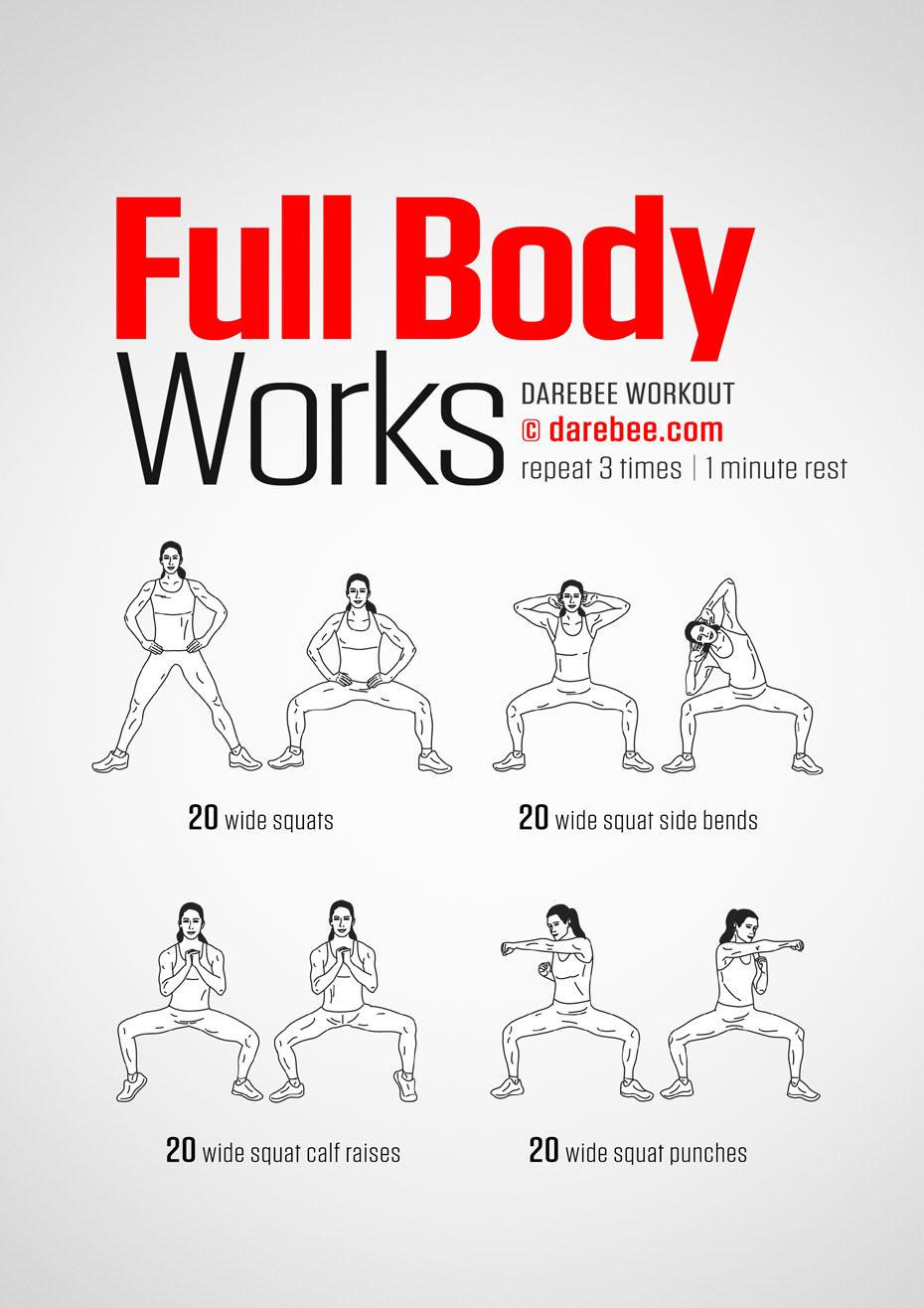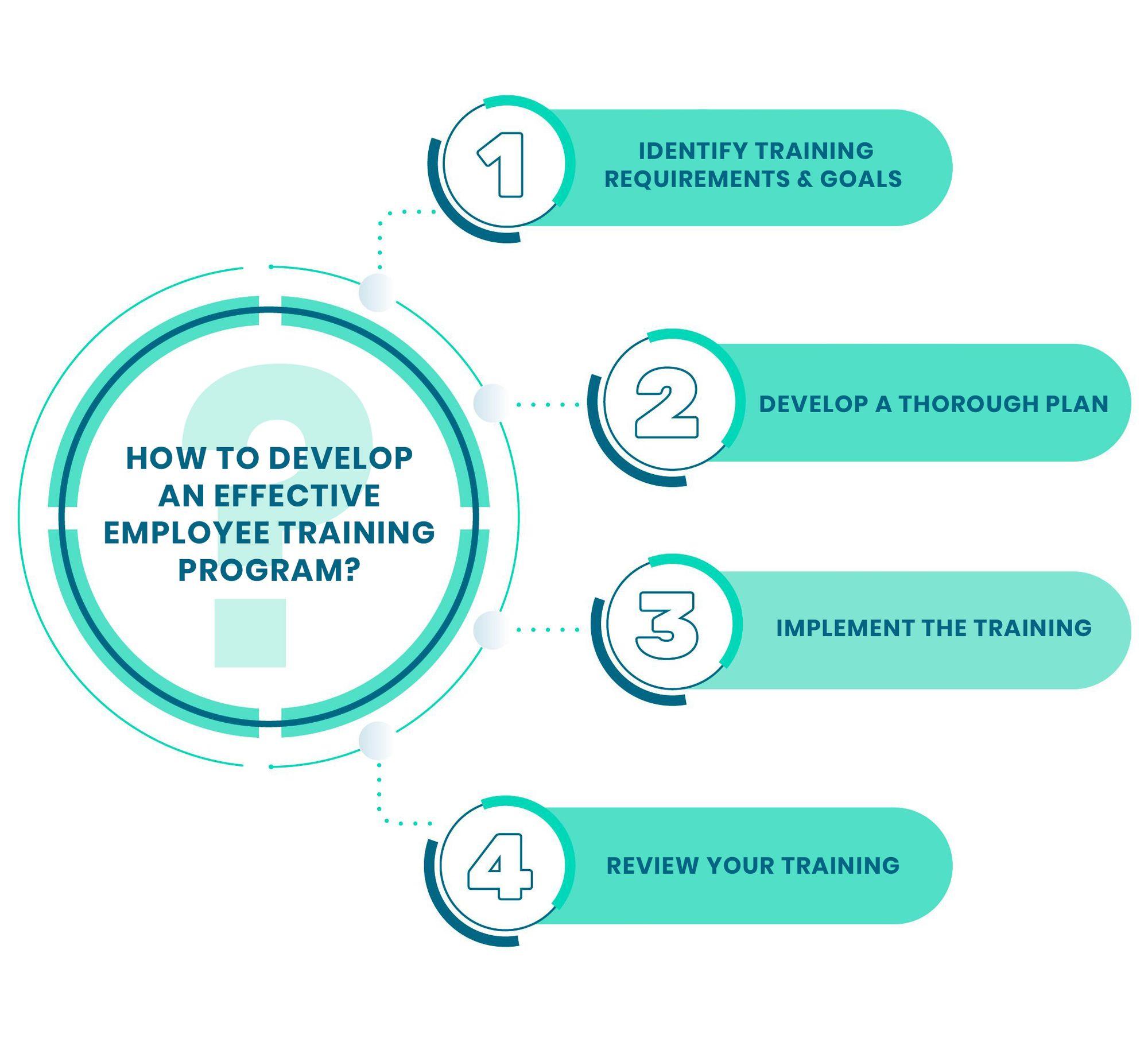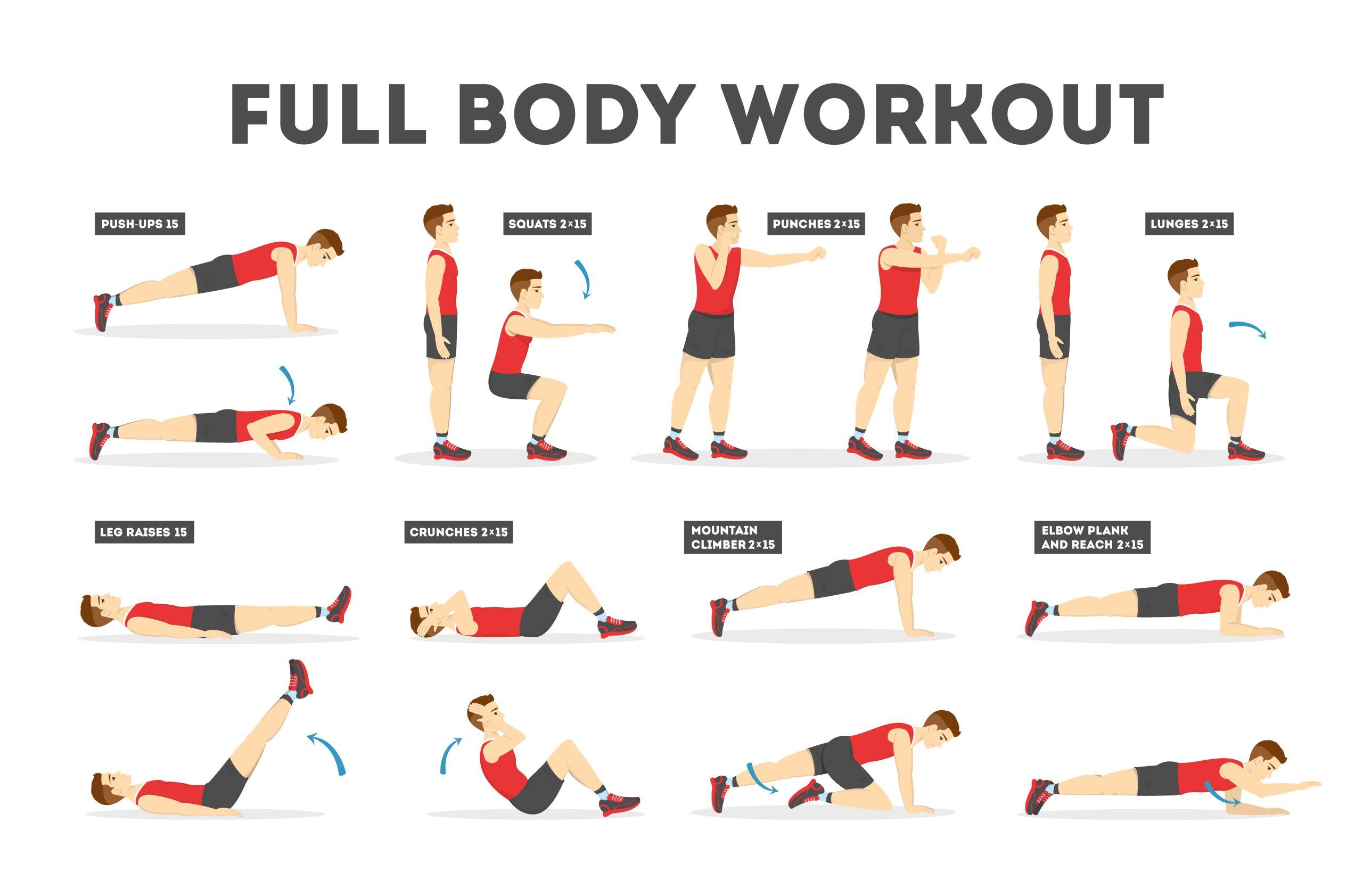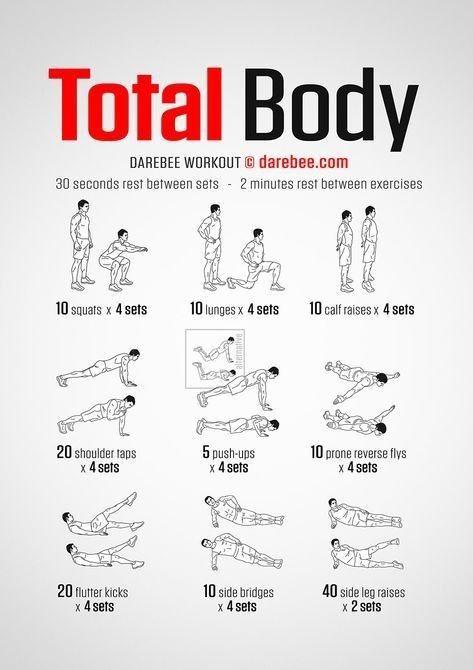In the ever-evolving world of fitness,were trends rise and fall like the tide,one principle remains steadfast: the power of a strong core. Unlocking strength is not merely about lifting heavy weights or perfecting a solitary stance; it’s about building a resilient foundation that supports endurance, enhances performance, and promotes overall well-being. Full-body workouts, designed to engage multiple muscle groups and boost cardiovascular capacity, are the key to unlocking this potential. In this article, we will explore the art and science behind full-body workouts tailored for endurance athletes. Whether you’re a seasoned marathon runner, a triathlete, or just embarking on your fitness journey, discover how these dynamic routines can cultivate strength, enhance stamina, and propel you toward your endurance goals. Join us as we delve into the world of full-body training and uncover the secrets to achieving lasting success in your endurance pursuits.
The Foundation of Endurance: Understanding Full-Body Workouts
At the core of endurance training lies a commitment to full-body workouts,which engage multiple muscle groups for comprehensive strength and conditioning. These workouts promote a balanced physique, reduce the risk of injury, and improve overall performance in various activities. by incorporating exercises that challenge both the upper and lower body, athletes can develop the stamina required to push through fatigue during prolonged endeavors. The efficiency of full-body workouts becomes apparent, as they can be tailored to different fitness levels while enhancing cardiovascular health and muscular endurance.
To effectively structure a full-body workout, consider the following key components:
- Compound movements: Exercises such as squats, deadlifts, and bench presses engage multiple joints and muscle groups together.
- interval Training: Alternating between high-intensity bursts of activity and active recovery keeps the body challenged and enhances endurance.
- Functional Exercises: Incorporating movements like kettlebell swings and pull-ups improves the strength needed for everyday activities.
| Workout Type | Focus Area | Example Exercise |
|---|---|---|
| Strength | Whole Body | Deadlift |
| Cardio | Endurance | Rowing |
| adaptability | Mobility | Yoga Flow |
By thoughtfully combining these elements, individuals can develop the resilience needed for endurance sports and physical challenges. Each workout should evolve over time, introducing new variations and increasing intensity to ensure continuous progress. This adaptability keeps the workouts engaging and maximizes gains in stamina, making full-body workouts a vital component of any successful endurance training program.

key Components of Effective Training for Lasting Energy
Achieving effective training that promotes lasting energy involves several critical components that combine to enhance overall endurance and physical performance. A well-structured program should include a mix of strength training, cardiovascular exercises, and flexibility work. Incorporating compound movements, such as squats and deadlifts, helps build muscle strength while improving functional fitness. Complementing these with cardiovascular workouts, like running or cycling, ensures that the body maintains optimal energy levels during prolonged activities. Flexibility routines,including yoga or dynamic stretches,play a vital role in recovery and injury prevention,thereby supporting a enduring training regimen.
Another key aspect is the integration of progressive overload alongside proper nutrition and hydration. Gradually increasing the intensity, volume, or complexity of workouts encourages the body to adapt and grow stronger over time. Proper nutrition, particularly a balanced intake of carbohydrates, proteins, and healthy fats, fuels the body for both workouts and recovery. Hydration cannot be overlooked, as it is crucial for maintaining performance and overall well-being.The following table summarizes the vital elements necessary for an energy-boosting training routine:
| Component | Description |
|---|---|
| Strength Training | Focus on compound movements that build overall muscle strength. |
| Cardiovascular Workouts | Includes activities like running or cycling for heart health and stamina. |
| Flexibility Routines | Incorporates yoga or stretches to enhance recovery and prevent injuries. |
| Progressive Overload | Gradual increase in workout intensity for continuous enhancement. |
| nutrition | Balanced diet that supports energy needs for training and recovery. |
| Hydration | Essential for maintaining performance and overall health. |

Optimizing Your Routine: Exercises to Elevate Performance
Enhancing your performance through a well-structured exercise routine involves integrating various full-body workouts that challenge multiple muscle groups simultaneously. Concentrating on compound movements can significantly boost your strength and endurance, essential for achieving your fitness goals. Consider incorporating the following exercises into your regimen:
- Squats: Engage your legs and core while promoting cardiovascular endurance.
- Deadlifts: A powerhouse movement that strengthens your back, legs, and grip.
- Push-ups: Classic upper body exercise that also activates your core.
- Burpees: A high-intensity full-body workout to elevate heart rate.
- Pull-ups: Target your back and arms while enhancing grip strength.
To effectively monitor your progress and tailor your workout phases, consider implementing a structured approach using tables to track your performance metrics. Below is an example of a simple tracking table that helps visualize gains in endurance and strength over time:
| Week | Exercise | Reps | Max Weight (lbs) |
|---|---|---|---|
| 1 | Squats | 15 | 150 |
| 2 | Deadlifts | 10 | 180 |
| 3 | Push-ups | 20 | – |
| 4 | Burpees | 12 | – |
By establishing a clear routine, compiling your results, and modifying your exercises as needed, you can effectively optimize your training for better overall performance.

Fueling Recovery: Nutrition Strategies for Endurance Athletes
For endurance athletes, recovery is as vital as the training itself, and nutrition plays a crucial role in this process. Proper fueling not onyl replenishes depleted energy stores but also repairs damaged tissue and reduces the risk of injury.Prioritizing a balanced diet rich in carbohydrates, proteins, and healthy fats is essential.Consider incorporating foods like:
- Quinoa - A complete protein that helps with muscle repair.
- Sweet potatoes – Filled with vitamins and carbohydrates for energy restoration.
- Greek yogurt – A great source of protein and probiotics for gut health.
- Leafy greens – rich in antioxidants to fight inflammation.
- Salmon – Provides omega-3 fatty acids that have anti-inflammatory benefits.
Timing your nutrition is equally vital. Post-workout, aim for a meal or snack that contains both protein and carbohydrates within the frist 30 minutes to 2 hours. This window is pivotal for muscle recovery and glycogen replenishment. Here’s a quick reference table for optimal recovery meals:
| Food Option | Protein (g) | Carbohydrates (g) |
|---|---|---|
| Grilled chicken with brown rice | 30 | 45 |
| Protein smoothie (whey, banana, almond milk) | 25 | 40 |
| Tuna salad on whole grain bread | 28 | 30 |
| Oatmeal with nut butter | 15 | 60 |
Final Thoughts
As we draw the curtain on our exploration of full-body workouts and their vital role in enhancing endurance, it becomes clear that the path to unlocking your strength is not merely about lifting heavier weights or clocking more miles. It’s about weaving together the threads of technique, consistency, and holistic engagement, ultimately crafting a tapestry of fitness that resonates with vitality and resilience.
By incorporating a variety of exercises that challenge your muscles from every angle, you cultivate not just physical endurance, but also mental fortitude—a crucial ingredient in any athletic pursuit. Remember,each rep and every drop of sweat is an investment in your journey.
So, whether you’re preparing for your next race, seeking to elevate your workout routine, or simply looking for a sustainable way to increase your strength, embrace the beauty of full-body workouts. They are the keys to unlocking potential within you, preparing your body and mind for the challenges that lie ahead. As you lace up your shoes and step onto the floor or the trail, carry forward the knowledge that true strength comes from the harmony of body and spirit, ready to push boundaries, explore limits, and soar toward new heights. Your endurance success story is just beginning—unlock those doors wide open.





Leave a Reply